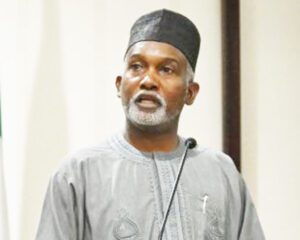
Afreximbank, WTO sign MoU to promote global trade
African Export-Import Bank has signed a Memorandum of Understanding (MoU) with the World Trade Organisation (WTO) to amplify the impact of their strategically aligned joint efforts of promoting global trade.
A statement issued by Vincent Musumba, Afreximbank’s Manager, Communications and Events, said the two organisations would promote global trade by leveraging Africa’s unique resource endowment.
Musumba said the MoU would allow the two organisations to pursue a collaborative framework for harmonising and coordinating their efforts towards deepening key trade development activities on the continent.
He said Afreximbank and the WTO are part of an inter-agency partnership championing transformative change in the cotton industry in Africa’s Cotton-4 plus (C4+) countries.
Musumba said the countries include Benin, Burkina Faso, Chad, Mali and Côte d’Ivoire as an observer.
“The MoU will afford the bank and the WTO Secretariat the opportunity to expand and deepen their collaboration to support the cotton sector beyond the C4+ countries.
“Their support will entail the development of local and regional value chains of cotton in Africa as well as their integration into the global value chain.”
He said another area of collaboration under the understanding would be on Trade Finance matters, addressing non-tariff barriers to trade, and the digital economy.
“Others are capacity building, the oceans’ economic and fisheries subsidies, the sports and creative economies and trading in the context of the African Continental Free Trade Agreement.”
Musumba quoted Prof. Benedict Oramah, President and Chairman of the Board of Directors, Afreximbank, who spoke at the MoU signing ceremony as saying:
“The WTO Secretariat is a natural partner to Afreximbank given our shared mandate of promoting trade and trade-related activities.
“We are already working with the Secretariat on FIFA’s C4+ Cotton Initiative, for which we have committed financing for project preparation for cotton transformation projects in Africa.
“ Formalising our relationship today signifies that we can go beyond our present collaboration to include other equally impactful interventions across key economic sectors in Africa.”
Oramah said Afreximbank recently signed a Charter with Confédération Africaine de Football (CAF) and the Rebranding Africa Forum (RAF) to build a robust sports economy.
He said the Charter would include commercialising and monetising African-made sports apparel and athleisure wear.
“This is yet another undertaking that will benefit from this MOU with the WTO Secretariat,” he said.
He quoted Dr Ngozi Okonjo-Iweala, Director-General, WTO Secretariat as saying, “the signing of this MOU is timely as it reflects some of the key priorities of many of our Members.
“ I am particularly pleased to see that it will support Members’ efforts in agriculture and food security, advance efforts to address harmful fisheries subsidies and promote cooperation on trade finance.
“ I am especially pleased that Afreximbank has committed to explore the opening of a finance window that would assist the C4+ countries on their journey to scale value addition on the continent.
“ I look forward to seeing real, on-the-ground results from this partnership,” she said.
Musumba said the C4+ countries have historically exported raw cotton for processing outside of the continent.
He said developing local industries to process and transform cotton into textile, could potentially create 500,000 jobs in the West African region.
Musumba said if harnessed well, it was expected that within the next 10 years, the C4+ countries could process up to 25 per cent of their cotton crops.
“This undertaking requires about five billion dollars in investment in production facilities and training for workers.
“Which in turn calls for capacity building, access to finance for businesses, and improved infrastructure”.




